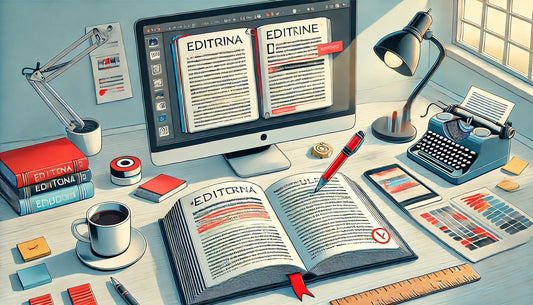
Jean-Luc Einaudi, a Life of Commitment: The October 25, 2025 Conference in Paris
On October 25, 2025, the auditorium of Paris City Hall resonated with an exceptional event. The association Les Ami.e.s de Jean-Luc Einaudi organized a conference entirely dedicated to this extraordinary man: "Jean-Luc Einaudi, a Life of Commitment." Historians, activists, lawyers, and witnesses gathered to celebrate the work of a self-taught researcher who devoted his life to a mission: bringing the most painful pages of our colonial history out of the shadows.
Who was Jean-Luc Einaudi?
Some life paths escape conventional trajectories. Jean-Luc Einaudi (1951-2014) was one of them. A trained educator, former youth protection worker, he became, almost in spite of himself, one of the greatest specialists on the Algerian War. His name remains inseparable from October 17, 1961, that massacre of Algerians in Paris that no one wanted to talk about for decades.
What strikes one about Einaudi is his quiet obstinacy, his way of sifting through archives, gathering testimonies, cross-referencing sources with the rigor of a professional historian. No university chair, no research laboratory: just a man facing his documents, determined to uncover the truth.
His struggle reached its peak in 1999, when he faced Maurice Papon in court. The former Paris police prefect had sued him for defamation after his revelations about the massacre. Einaudi won. This legal victory marked a turning point: for the first time, France officially recognized the reality of October 17, 1961.
A Day Rich in Discovery
The conference unfolded in three parts, like three facets of the same extraordinary life.
The Man Behind the Historian
The first roundtable revealed the roots of Einaudi's commitment. Joëlle and Gilbert Rigal, Alain Castan, his daughter Elsa Einaudi, Marie-Laure Tenaud, Jean-Jacques Yvorel, and Patrick Karl shared their memories and analyses. We understood how his work as an educator with young people nourished his reflection as a historian. For him, social action and historical research were one and the same: impossible to separate the fieldworker from the researcher immersed in archives.
Pioneer of a Long-Refused History
The second session brought together major figures: Daniel Kupferstein, Emmanuel Blanchard, Nadine Fresco, Fabrice Riceputi, Gilles Manceron, journalist Edwy Plenel, Philippe Grand, alongside Elsa Einaudi and Patrick Karl. Together, they explored the Einaudi method. Because it wasn't just about writing the history of colonialism: it first had to be accepted, legitimized in the face of those who preferred oblivion.
Einaudi opened breaches where others saw walls. His approach, based on obsessive archival work and careful listening to witnesses, created a new way of doing history. A ground-level history, as close as possible to the victims.
October 17, 1961: When One Man Shifts History
This was probably the most intense moment of the day. The third roundtable dove into the heart of Einaudi's struggle: October 17, 1961. Arié Alimi, Pierre Mairat, Kahina Ait Mansour, Louise Vignaud, Olivier Le Cour Grandmaison, Cherif Cherfi, Mehdi Lallaoui, Sohir Belabbas, Daniel Kupferstein, and Amar Nanouche showed how one man, through his relentless work, was able to transform a concealed event into a symbol of colonial violence.
Let's recall the facts: on October 17, 1961, dozens of Algerians were killed by the Parisian police. They were peacefully demonstrating against a racist curfew imposed on them. For nearly forty years, radio silence. As if nothing had happened. As if those deaths had never existed.
Jean-Luc Einaudi refused this lie by omission. Investigation after investigation, book after book, testimony after testimony, he reconstructed the truth. And when Maurice Papon tried to silence him, he held firm. His victory in court cracked the wall of official silence.
Today, when we speak of October 17, 1961, it's largely thanks to him. The commemorations, the plaques, the official recognitions: all of this stems from his obstinacy.
Why Einaudi Still Speaks to Us
This conference, opened by Fabrice Riceputi and Elsa Einaudi, was not a simple nostalgic tribute. It reminded us of something essential: Einaudi's work remains terribly relevant. The memory questions linked to our colonial past continue to stir French society. Debates about contrition, recognition, and transmission of this painful history are far from over.
Einaudi left us more than books. He transmitted a moral requirement: to look our history in the face, even when it disturbs us. He showed us that we cannot build a peaceful society on lies and organized oblivion.
History, his path tells us, is not reserved for university professors. It also belongs to citizens who refuse collective amnesia. To those who, armed only with determination, choose truth over the ease of silence.
The presentations of this day prove that Einaudi's legacy is alive. Researchers, teachers, activists, and citizens continue his work. They clear other shadowy areas, question other silences. This is the best way to honor him.
Discovering Jean-Luc Einaudi
If you want to dive into his work, the association Les Ami.e.s de Jean-Luc Einaudi has gathered a wealth of resources: his complete biography, his major works on the Algerian War and October 17, 1961, archives, testimonies. Everything is there to understand how this discreet educator became an essential figure in contemporary history.
Because ultimately, Jean-Luc Einaudi reminds us of something simple: history is never truly finished. It is rewritten, completed, corrected over time and through struggles. And as long as there are truth-seekers like him, the dark pages of our past will always end up being illuminated.
A Work Accessible to All
More than ten years ago, Digital Index publishing house had the privilege of publishing one of Jean-Luc Einaudi's major works: Franc-tireur - Georges Mattéi from the Algerian War to Guerrilla Warfare.
This augmented digital edition, now in the public domain, is much more than a simple publication. It has been enriched with numerous unpublished documents, rare photographs, exclusive interviews, and archival videos that give exceptional depth to the narrative. Among these documentary treasures: Georges Mattéi's manuscript about his meeting with Jean-Paul Sartre, texts published in Les Temps modernes and Esprit, an unpublished play, as well as interviews conducted by Einaudi with figures like Gérard Chaliand, François Maspero, and Adolfo Kaminsky.
The book traces the extraordinary path of Georges Mattéi, variously a soldier in Algeria, border smuggler, forger of false documents, journalist, and writer. A man who rubbed shoulders with Jean-Paul Sartre, Fidel Castro, and Daniel Cohn-Bendit – whom he smuggled into France in May 1968.
Through this captivating biography, an entire era resurfaces: that of anti-colonial struggles, international solidarities, uncompromising commitments. A historical fresco that still resonates today.
Now in the public domain, this work remains an essential testimony for understanding Jean-Luc Einaudi's work and method.
Access the free ebook on Digital Index



